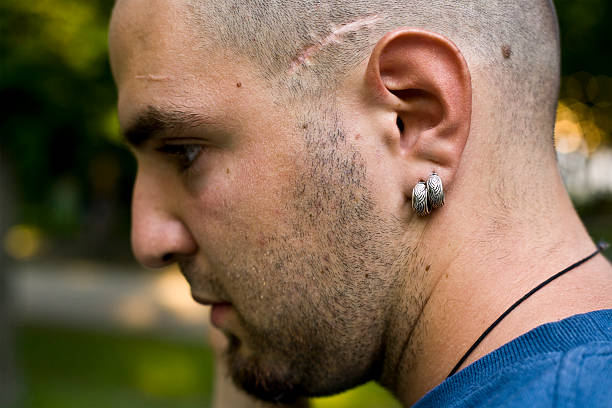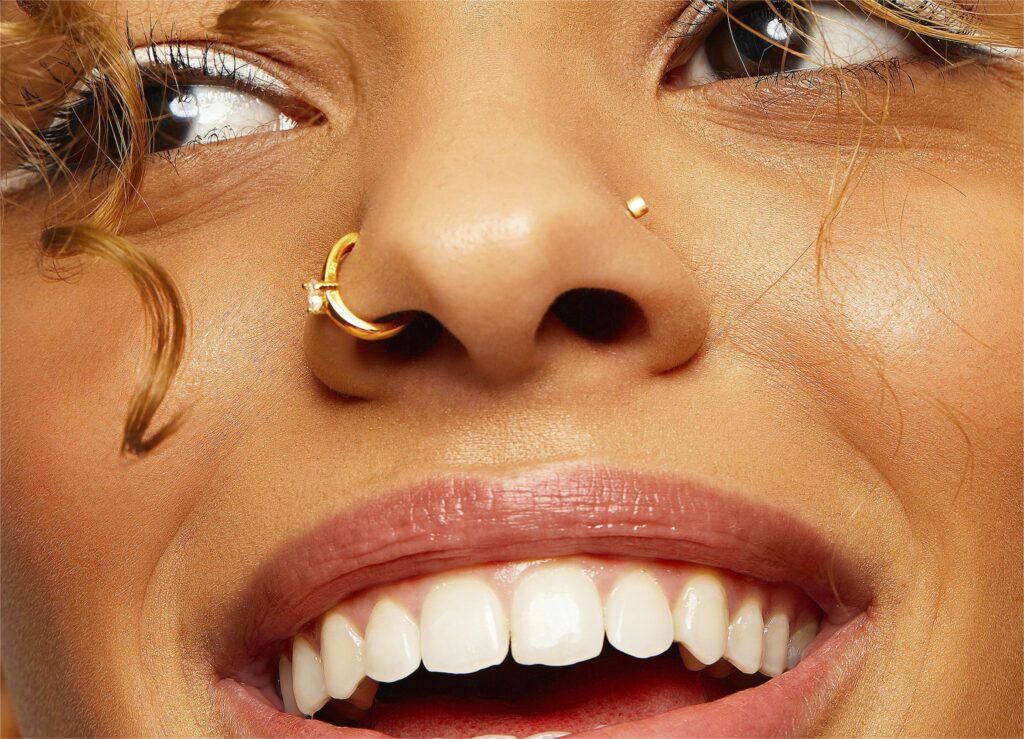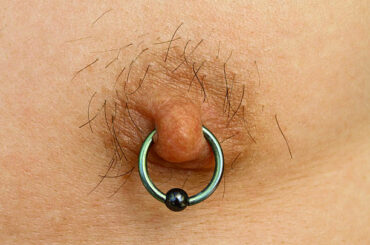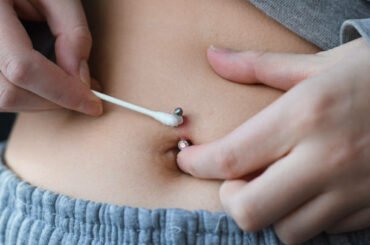Contents
Earring hole feels hard
Introduction
Having a hard sensation around your earring hole can be concerning and uncomfortable. This experience is not uncommon among individuals with pierced ears and may signify various underlying issues. Addressing this discomfort is crucial not only for immediate relief but also for maintaining overall ear health and comfort. In this article, we’ll delve into the reasons behind a hard earring hole and discuss the importance of promptly addressing any discomfort associated with pierced ears. Understanding these factors can help individuals make informed decisions about their ear care and seek appropriate solutions for a more comfortable and enjoyable piercing experience.
Common Causes of a Hard Earring Hole
a. Irritation from Earrings: Wearing tight or inappropriate earrings can lead to constant friction and pressure on the piercing site. This irritation can cause the surrounding tissue to become inflamed and hardened, resulting in discomfort and a hard sensation around the earring hole.
b. Infection: Bacterial infections are a common complication of pierced ears, especially if proper hygiene practices are not followed. Infections can cause inflammation, swelling, and tenderness around the earring hole, resulting in hardness and discomfort. It’s essential to address infections promptly to prevent further complications.
c. Keloid Formation: Keloids are raised scars that can develop around piercing sites, particularly in individuals prone to excessive scar tissue formation. These firm, irregular growths can cause the area around the earring hole to feel hard and may be accompanied by itching or pain.
d. Granuloma: Granulomas are small, firm bumps that can form near piercing sites in response to irritation or trauma. These benign growths are typically composed of inflamed tissue and can result in hardness and discomfort around the earring hole. Granulomas may resolve on their own but may require medical attention if they persist or cause significant discomfort.
e. Scar Tissue: Scar tissue formation is a natural part of the healing process after piercing. However, excessive scar tissue can develop if the piercing site experiences trauma or irritation. This scar tissue can feel firm and may contribute to a hard sensation around the earring hole. Proper care and management of the piercing site can help minimize excessive scar tissue formation.

Signs and Symptoms
When experiencing a hard earring hole, it’s essential to pay attention to any accompanying signs and symptoms that may indicate an underlying issue. Here are common signs and symptoms associated with this discomfort:
Redness: The skin around the earring hole may appear reddened or inflamed, indicating irritation or infection.
Swelling: Swelling around the earring hole is a common sign of inflammation, infection, or an allergic reaction to the earring material.
Discharge: Discharge from the earring hole, such as pus or blood, can signify an infection or other complications that require prompt attention.
Pain: Pain or tenderness around the earring hole, especially when touched or when wearing earrings, is a common symptom of irritation, infection, or inflammation.
These signs and symptoms may vary in severity and can indicate different underlying causes. It’s essential to monitor these symptoms closely and seek appropriate medical attention if they persist or worsen. Prompt evaluation and treatment can help address the underlying issue and prevent further complications.
Prevention and Management Strategies
a. Proper Earring Selection: Choose hypoallergenic earrings made of materials like surgical stainless steel or titanium to minimize irritation. Avoid earrings made of nickel or other metals that may cause allergic reactions. Opt for earrings with smooth, rounded edges to reduce friction and pressure on the piercing site.
b. Hygiene Practices: Maintain good hygiene practices by keeping the pierced area clean. Use a saline solution or mild soap and water to gently cleanse the earring hole and surrounding skin. Avoid harsh chemicals or alcohol-based products, as they can dry out the skin and increase the risk of irritation or infection.
c. Avoiding Touching or Manipulating the Area: Refrain from touching or manipulating the earring excessively, as this can introduce bacteria and irritants to the piercing site, leading to inflammation and hardness. Avoid twisting or turning the earrings, and resist the urge to scratch or pick at the earring hole.
d. Seeking Professional Advice: If experiencing discomfort or concerns about a hard earring hole, consult with a piercer or healthcare professional for personalized advice and guidance. They can assess the earring hole, identify any underlying issues, and recommend appropriate treatment options. Prompt evaluation by a professional can help address the problem effectively and prevent further complications.
By following these prevention and management strategies, individuals can promote healing, reduce discomfort, and maintain the health and integrity of their pierced ears. Consistent care and attention to the pierced area are essential for a comfortable and successful piercing experience.

Conclusion
In conclusion, addressing discomfort in pierced ears promptly is essential for ensuring proper healing and preventing complications. Whether experiencing a hard earring hole due to irritation, infection, or other factors, it’s crucial to take proactive steps to promote healing and maintain ear health.
By following proper earring selection, hygiene practices, and avoiding unnecessary manipulation of the piercing site, individuals can reduce the risk of complications and promote a comfortable healing process. Seeking professional advice from a piercer or healthcare professional is also recommended if experiencing persistent discomfort or concerns about the earring hole.
Ultimately, prioritizing ear health and taking proactive steps to address any issues promptly are essential for maintaining comfortable and healthy pierced ears. By staying vigilant and seeking professional guidance when needed, individuals can enjoy their pierced earrings with confidence and peace of mind.




